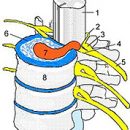Obsessive compulsive disorder is most often a combination of obsessive ideas and obsessive actions that carry these ideas. Such actions may be the most different. Read more about the types of obsessive actions, read in the article.
Content
One of the main manifestations of obsessive-compulsive syndrome are obsessive actions - a compulcia. Although obsessive actions are formally found, under conscious control, people who feel the need to make them do not really have a special choice. They believe that if they do not fulfill these actions, then something terrible will happen. At the same time, most of these people aware that their behavior is irrational.
After performing obsessive action, they usually feel relieved for a while. Some people turn this action into detailed and often carefully thought out compulsive ritual. They must make a ritual every time the same way, obeying certain rules.
 Like obsessive thoughts, obsessive actions can take various forms. The obsessive actions associated with cleansing are very common. People with such a disorder feel that they must constantly clean themselves, their clothes, their home. Cleaning and cleaning can follow the ritual rules and repeated dozens and, even, hundreds of times on the day. People suffering from obsessive actions associated with checking check the same things again and again, for example, door lock, gas crane, ashtray, important paper. Another common type of obsessive actions suffer from people who are constantly looking for order or proportionality in their actions and in what surrounds them. They can lay out objects (for example, clothing, books, products) are exactly according to strict rules.
Like obsessive thoughts, obsessive actions can take various forms. The obsessive actions associated with cleansing are very common. People with such a disorder feel that they must constantly clean themselves, their clothes, their home. Cleaning and cleaning can follow the ritual rules and repeated dozens and, even, hundreds of times on the day. People suffering from obsessive actions associated with checking check the same things again and again, for example, door lock, gas crane, ashtray, important paper. Another common type of obsessive actions suffer from people who are constantly looking for order or proportionality in their actions and in what surrounds them. They can lay out objects (for example, clothing, books, products) are exactly according to strict rules.
Thirteen-year-old Paul was aimed at examining the psychiatric department of the hospital in connection with «meaningless rituals and attention to trifles». He could spend three hours, having a roll of toilet paper strictly in the center of the holder or correlacing bed and other items in their room. He shifted books several times or tied shoelaces on shoes until they were convinced that they were lying «smooth». Being usually peaceful, he cursed with his family members, when those tried to enter him into the room, because of fear that they moved or break his things. Being at school, Paul worried that people could disrupt order in his room. Sometimes he forcibly had to tear off the routine classes so that the boy could at least eat. Last year he hid the items of his wardrobe around the house, because they did not want to lie exactly in his boxes. Moreover, Paul often repeated himself: «That's great; You're doing fine».
Other common obsessive actions are touching (repeated touch or avoiding touch to certain things), verbal rituals (repetition of expressions or theft of motifs) or an account (repeated counting of objects occurring during the day).









